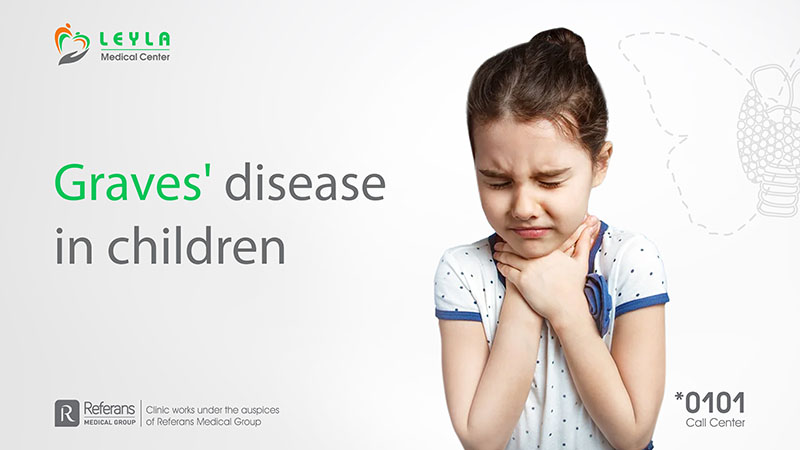Graves' disease is the most common cause of hyperthyroidism in children and adolescents. It is often found during puberty and in girls. In Graves' disease, antibodies produced against thyroid-stimulating hormone (TSH) receptors bind to the receptors, causing an increase in hormone formation and thyroid gland growth. The diagnosis of the disease is often made clinically. Goiter, palpitations, decreased academic performance and attention disorders are important clinical signs in children and adolescents with Graves' disease. With the development of more sensitive analyses of antibodies to thyroid-stimulating hormone receptors, the diagnosis is confirmed more reliably. Today's treatment options include antithyroid medication (AIT), surgery, and radioactive iodine therapy (RAI). Treatment with antithroid drugs (Methimazole or Carbimazole) is recommended as an initial treatment for Graves' disease and gives fairly good results. Permanent treatment with radioactive iodine is preferable, especially for the treatment of adolescents. The choice of an approach to the treatment of Graves' disease in childhood is quite complicated and largely depends on individual decisions.

